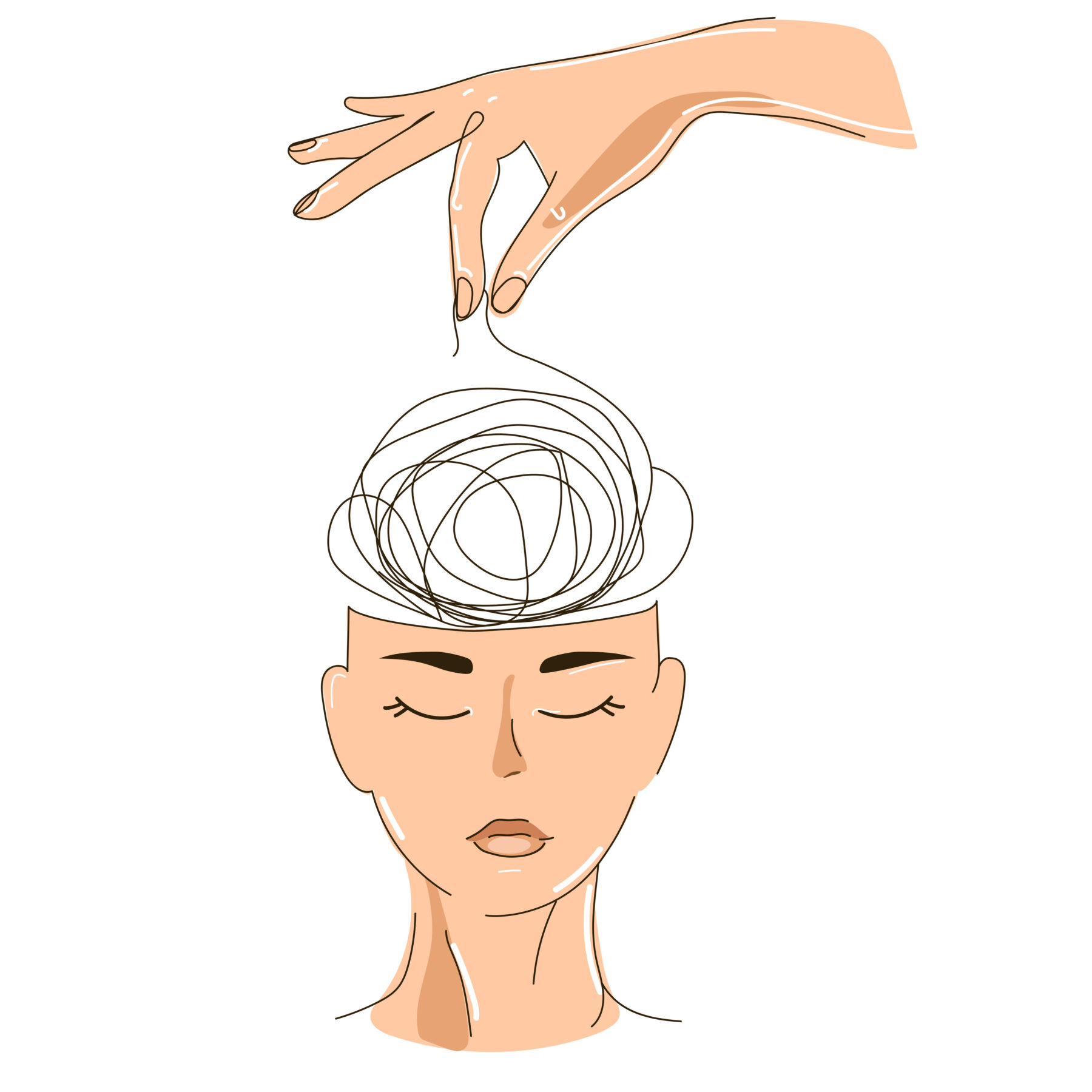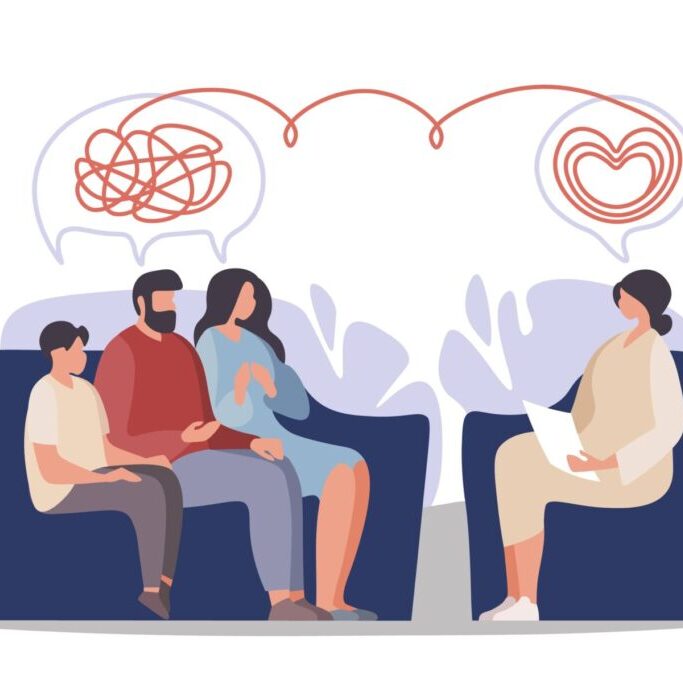Common Myths About Therapy and Why They’re Not True

Therapy, despite its proven effectiveness, is often misunderstood and shrouded in numerous, common myths. Misconceptions and myths about therapy can deter individuals from seeking the help they need. Let’s delve deeper into some of the common myths about therapy, debunking them and shining a light on the reality of therapeutic practice.
Myth 1: My problems aren’t serious enough for therapy
Many people believe that their struggles must be life-altering or extreme to warrant therapy. This is one of the most widespread myths about therapy, which can hinder people from seeking timely help.
In reality, no issue is too small or insignificant if it’s causing distress. Therapy offers an open, supportive space to navigate through all kinds of emotional challenges, from daily stressors to deeper psychological issues.
The belief that only those with serious issues need therapy reinforces the harmful stigma around mental health. It’s essential to remember that seeking help is a sign of strength, not weakness. By normalizing therapy for a range of issues, we can empower more individuals to seek assistance when needed, improving the overall mental well-being of our communities.
Myth 2: All therapy is the same
One common myth about therapy is the assumption that it’s a monolithic, one-size-fits-all practice. On the contrary, therapy is an umbrella term encompassing many different techniques, approaches, and modalities, each tailored to suit a variety of issues and personal preferences.
Cognitive-behavioral therapy (CBT), for instance, focuses on changing negative thought patterns, while psychodynamic therapy explores how past experiences influence present behavior.
Each approach is unique in its principles and methods. Understanding this diversity is crucial in dismantling the myth that all therapy is identical and can help potential clients find the right fit for their specific needs. If you’ve had a past experience with therapy that wasn’t successful, there is hope that a different therapist, style, and approach can benefit you!
Myth 3: Therapy is just like talking to a friend
Some believe that a good chat with a friend can replace therapy, but this overlooks the expertise and skills of a professional therapist. While supportive friends are invaluable, a therapy session offers a structured and confidential environment for expressing thoughts and emotions without fear of judgment or repercussion.
Furthermore, therapists have undergone extensive training to offer insights, provide strategies for coping, and facilitate personal growth. Friends, as well-meaning as they may be, may not have the knowledge, objectivity, or resources to offer the same level of guidance. Therefore, while conversations with friends can be comforting, they aren’t a substitute for professional therapy.
Myth 4: I’ll have to stay in therapy forever
The fear of being tethered to therapy indefinitely can be a substantial deterrent for many considering this route. However, this common myth about therapy is far from the truth. The duration of therapy varies widely and is tailored to individual needs, therapeutic goals, and progress made.
In reality, therapy is a process, not a life sentence. Short-term therapy may last a few weeks or months and can be beneficial for addressing specific issues, while long-term therapy may be more suitable for exploring deeper emotional concerns. The goal is always progress, not perpetuity.
Myth 5: A therapist will make me talk about things before I am ready
There is often a fear that therapy will force you into revealing your deepest, most painful secrets before you’re ready. However, therapy is intended to be a safe space where individuals can open up at their own pace. Therapists are trained to respect their clients’ boundaries and to approach sensitive topics with care.
While therapy does involve delving into personal and often challenging issues, this doesn’t mean you’ll be forced to confront painful topics prematurely. A good therapist will guide and encourage you gently, allowing you to take the lead in revealing your thoughts and experiences when you feel ready.
Myth 6: I’ll feel better after one session
Many expect immediate relief after their first therapy session, feeding into the myth that therapy is a quick fix. While some individuals may experience a sense of catharsis or enlightenment after a single session, most therapeutic processes take time.
Real, lasting change typically comes through continuous effort, introspection, and perseverance over multiple sessions. Therapy is a journey, not a sprint. It involves understanding oneself, developing new coping mechanisms, and gradually changing unhelpful patterns of thinking and behaving.
Myth 7: My therapist will interrogate or shame me
Another common myth about therapy is the fear of being interrogated or shamed by a therapist. This misconception might stem from media portrayals or misconstrued second-hand experiences. However, ethical therapists aim to foster an environment of trust, empathy, and respect.
Professional therapists facilitate conversations; they don’t interrogate. They’re there to help clients explore their thoughts and feelings, not to shame them. The therapy room should be a judgment-free zone, where individuals feel heard, validated, and supported.
Myth 8: Therapy doesn’t work
Skepticism about the effectiveness of therapy is a barrier for many. Some people may have had negative experiences, while others may have been influenced by societal misconceptions. However, numerous scientific studies refute this myth, demonstrating the effectiveness of therapy for a variety of mental health conditions and life challenges.
While it’s important to acknowledge that not all therapy experiences are successful, and not every therapist will be the right fit for every client, these are exceptions rather than the rule. Most people who engage actively in their therapy process see significant benefits, including increased well-being, better interpersonal relationships, and decreased symptoms of mental health disorders.
Myth 9: A therapist will confirm my worst fear – that there is something wrong with me
One fear that may prevent people from seeking therapy is the worry that a therapist will confirm their worst fears about themselves. However, the aim of therapy is not to judge or label clients but to provide them with the tools and strategies to manage their thoughts and feelings more effectively.
In therapy, the focus is on fostering self-understanding, acceptance, and growth, rather than dwelling on what’s “wrong.” Many individuals find that therapy helps them to view their experiences from a new perspective, challenging self-critical thoughts and developing a kinder, more understanding relationship with themselves.
Myth 10: Not many people go to therapy
The assumption that therapy is an uncommon practice can further stigmatize mental health services, making those who seek them feel isolated or unusual. However, therapy is widely used and increasingly accepted as a part of comprehensive healthcare.
In fact, according to the National Institute of Mental Health, nearly one in five U.S. adults live with a mental illness, many of whom find therapy a valuable part of their treatment plan. This myth about therapy further emphasizes the need for open conversations about mental health to normalize and promote therapeutic services.
Myth 11: Therapy is just an expensive venting session
The belief that therapy is merely a pricey way to vent can undermine the value of therapeutic services. Venting can certainly be a part of therapy, but it’s far from the whole picture. Therapy involves active work on the part of both the therapist and the client, aiming to identify and change unhelpful patterns and behaviors.
With a professional therapist, individuals can gain new perspectives, learn valuable coping skills, and make lasting changes in their lives. While venting can provide temporary relief, the true value of therapy lies in its ability to facilitate enduring emotional and behavioral changes.
Myth 12: Therapy is too expensive
While the cost of therapy can be a barrier, it’s important to debunk the myth that therapy is unaffordable for most people. Most medical insurance covers a significant portion of the cost of therapy. We can help navigate the complicated insurance landscape if you need. For those without insurance, sliding scale options and other resources are also available.
Unmasking these is vital in breaking down barriers and stigmas surrounding mental health. Therapy is a valuable tool for anyone looking to improve their emotional well-being, and these truths bring us one step closer to a world where everyone feels comfortable seeking the help they need.
This blog is made for informational and educational purposes only. It is not medical advice. The information in this blog is not intended to (1) replace a one-on-one relationship with a qualified licensed health care provider, (2) create or establish a provider-patient relationship, or (3) create a duty for us to follow up with you.



